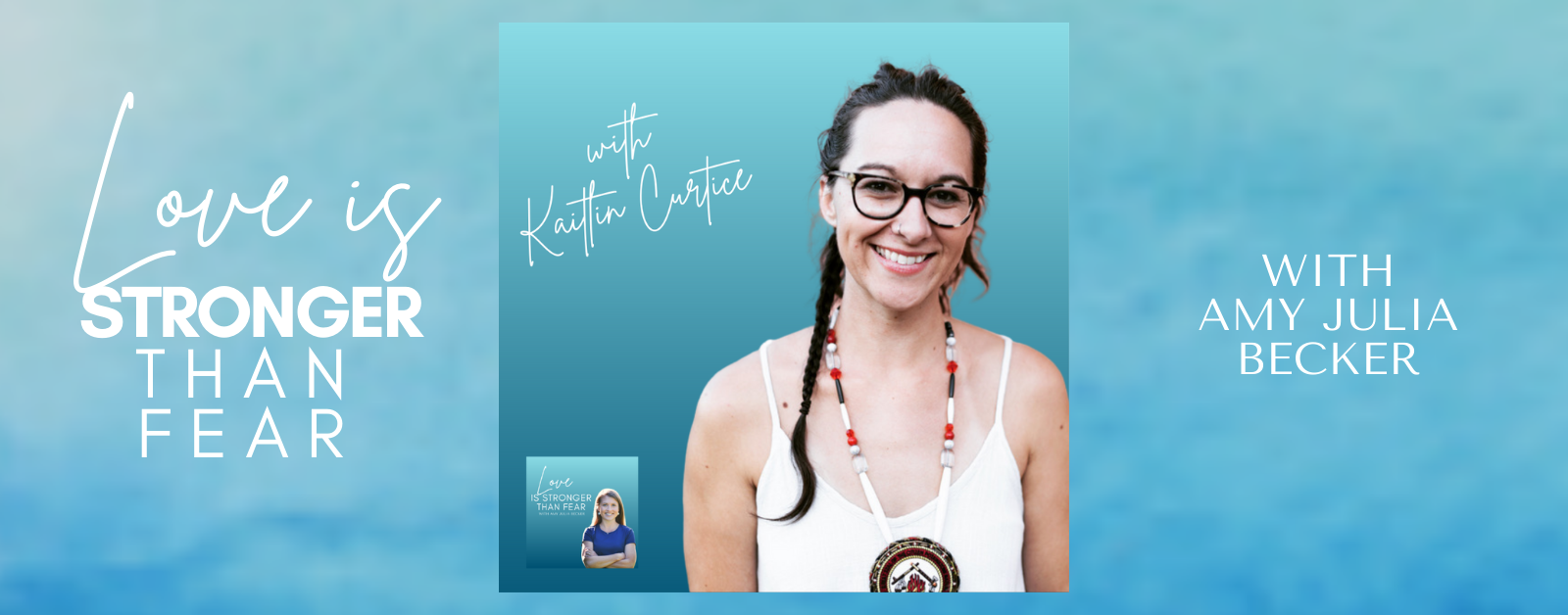“What does it mean for me to actually be a Potawatomi woman? To be a Christian? To be human?” Kaitlin Curtice, the author of Native and a member of the Potawatomi Nation, joins Amy Julia on the podcast to talk—and to ask questions—about racial and religious identity, holidays and traditions, and entering into an expansive understanding of the love of God.
Show Notes
As both a member of the Potawatomi Nation and a Christian, Kaitlin Curtice offers a unique perspective on the never-ending journey of finding ourselves and finding God. Kaitlin’s book Native: Identity, Belonging, and Rediscovering God “shows how reconnecting with her Native American roots both informs and challenges her Christian faith.”
Connect online:
- Website: kaitlincurtice.com
- Instagram: @kaitlincurtice
- Twitter: @KaitlinCurtice
On the Podcast:
- Kaitlin’s books: Native and Glory Happening
- The Doctrine of Discovery document
Searching for Racial and Religious Identity as a Potawatomi Woman quotes | Kaitlin Curtice
“[when] your faith becomes the catchall for your identity, we lose the nuance of what it means to be human in a lot of ways.”
“That’s what assimilation does…the church wants what is white in me but not what is native in me.”
“What I want to do is help people ask the questions in the first place about America, about Christianity, about who they are…and that’s about belonging, right, about identity.”
“Can we have thoughtful, reciprocal relationships with one another where the end goal isn’t, ‘Can I get you to heaven or not?’”
“You can’t reconcile something until you actually acknowledge it. American Christianity has not acknowledged its complicity in the genocide and colonization of Indigenous peoples.”
“When we learn to have this reciprocal relationship with the earth, we will become more humble as human beings.”
“We take care of ourselves because we also are trying to learn to care for one another better.”
“This journey [of decolonization work or anti-racism work] is lifelong, and it will involve us messing up and trying again and apologizing and fixing it and reading another book and then reading that book all over again…”
“Every time we take a step forward or we do the action, that doesn’t mean that we’ve now reached the end and done all the things. We should always be doing all of the things and not think that we have to reach some finish line. We’re always doing it. That’s what being human is. That’s how we love each other better.”
Head, Heart, Hands, Season 4 of the Love Is Stronger Than Fear podcast, is based on my e-book Head, Heart, Hands, which accompanies White Picket Fences. Check out free RESOURCES that are designed to help you respond to the harm of privilege and join in the work of healing. Learn more about my writing and speaking at amyjuliabecker.com.
👁🗨Accessibility: You can read the transcript for this episode here, or see this episode with subtitles on my YouTube channel.
Thank you to Breaking Ground, the co-host for this podcast.
To learn more with Amy Julia:
- Love is Stronger Than Fear | Season 4—Head, Heart, Hands
- S4 E11 | Making Art in a Broken World with Makoto Fujimura
- S4 E5 | Healing the Harm of White Evangelicalism with Kristin Du Mez
If you haven’t already, please subscribe to receive regular updates and news. You can also follow me on Facebook, Instagram, Twitter, Pinterest, YouTube, and Goodreads, and you can subscribe to my Love Is Stronger Than Fear podcast on your favorite podcast platforms.



